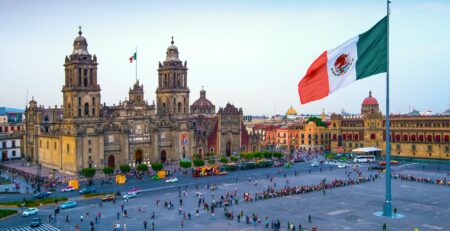U.S. pension funds heavily invested in China despite crackdown
U.S. proposals to clamp down on investments in China may be being undermined by continued funding from some of America’s biggest institutional investors, new analysis shows.
The majority of U.S. public pensions, as well certain universities and non-profit organizations, have committed funds to China and Hong Kong, including in sensitive technologies — some as recently as this year, according to a report by Future Union, a non-partisan trade organization.
The 74 largest contributors have allocated more than $70 billion to companies in China and Hong Kong via more than 1,100 investments in various funds, including those with exposure to tech majors such as TikTok-maker ByteDance, Tencent and Alibaba.
The data — which was compiled through a combination of public and private databases, including capital markets database Pitchbook, CapitalIQ and Private Equity International — hones in on the U.S.’s biggest pension funds found to be invested in China. However, the report’s authors said the number invested is likely to be much larger.
“The 74 are the best exemplars of a long laundry list of U.S. pension funds invested in China,” Andrew King, executive director of Future Union, told CNBC via the phone.
The findings come as U.S.-China relations have deteriorated over recent years amid concerns over national security, trade and defense, including China’s increased provocations toward Taiwan.
The first face-to-face meeting in November between President Joe Biden and President Xi Jinping indicated an ostensible warming of ties, yet Washington has remained steadfast in its plans to “de-risk” from Beijing. In August, Biden instituted a ban on certain investments in China, specifically sensitive technologies, which is expected to be implemented from next year.
While not in violation of the ban, the funds’ ongoing investments in an “adversary” highlights the “historical misuse of capital” by key capital allocators, King said, adding that the idea of the report was to get the funds “to move and change.”
Of the top 74 pension funds cited in the report, three-quarters made investments within the last 36 months — the minimum threshold instituted by Future Union to “obviate claims of plausible deniability” over rising U.S.-China tensions. Four in 10 (39%) committed funds within the past 12 months.
“This is a staggering 75% renewal rate by pension portfolio managers entrusted to responsibly manage the retirement wealth of the U.S. pensioners, despite the geopolitical implications,” King said.
“It’s become the latest greenwashing, where everybody says the right things [about divesting from China] but getting them to adhere to it is a different story,” he added.
California and New York funds lead the charge
The New York State Common Retirement Fund (NYSCRF), which serves over 1.2 million public employees, was identified as the largest investor in China and Hong Kong, according to the report, committing a total of $8.3 billion to the region, including $3.5 billion (42%) in the past 36 months.
Commenting on the findings, a NYSCRF spokesperson disputed the total sum invested, saying that it was closer to $6.1 billion, or “less than 3% of its more than $250 billion in assets.”
The California Public Employees Retirement System (CaIPERS) — which describes itself as “the nation’s largest public pension fund,” serving more than 2 million of California’s public employees — ranked second. The fund has invested an aggregate $7.8 billion in China, a quarter ($1.8 billion) of which was committed over the past three years, including in 2023.
A spokesperson for CaIPERS said it is “a global investor and believes diversification is a key component to generating the returns needed to meet the retirement security of our 2 million members.” They added that the fund is “closely monitoring” discussions in Washington and elsewhere, and said that it will comply with “any additional government requirements that might be initiated.”











